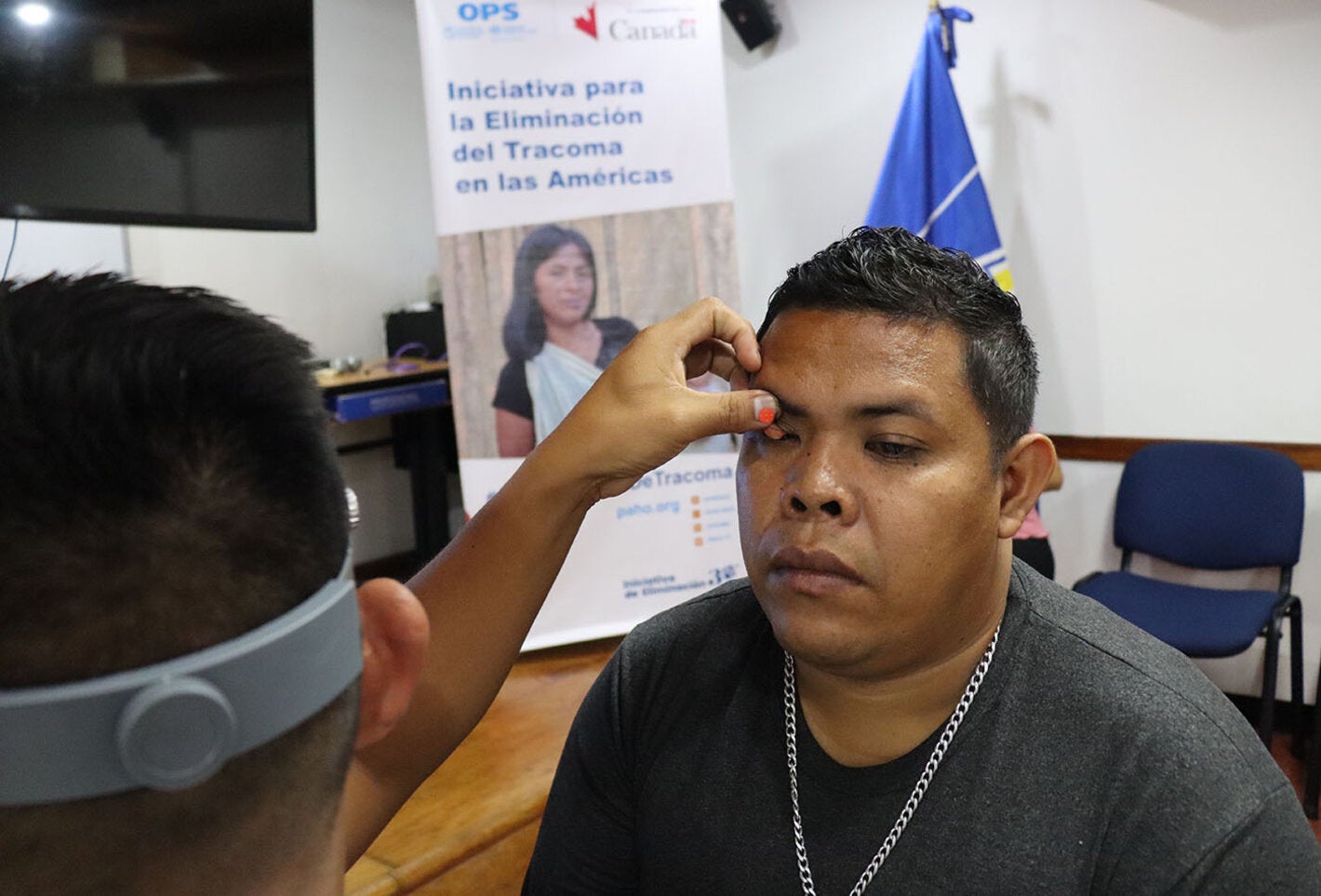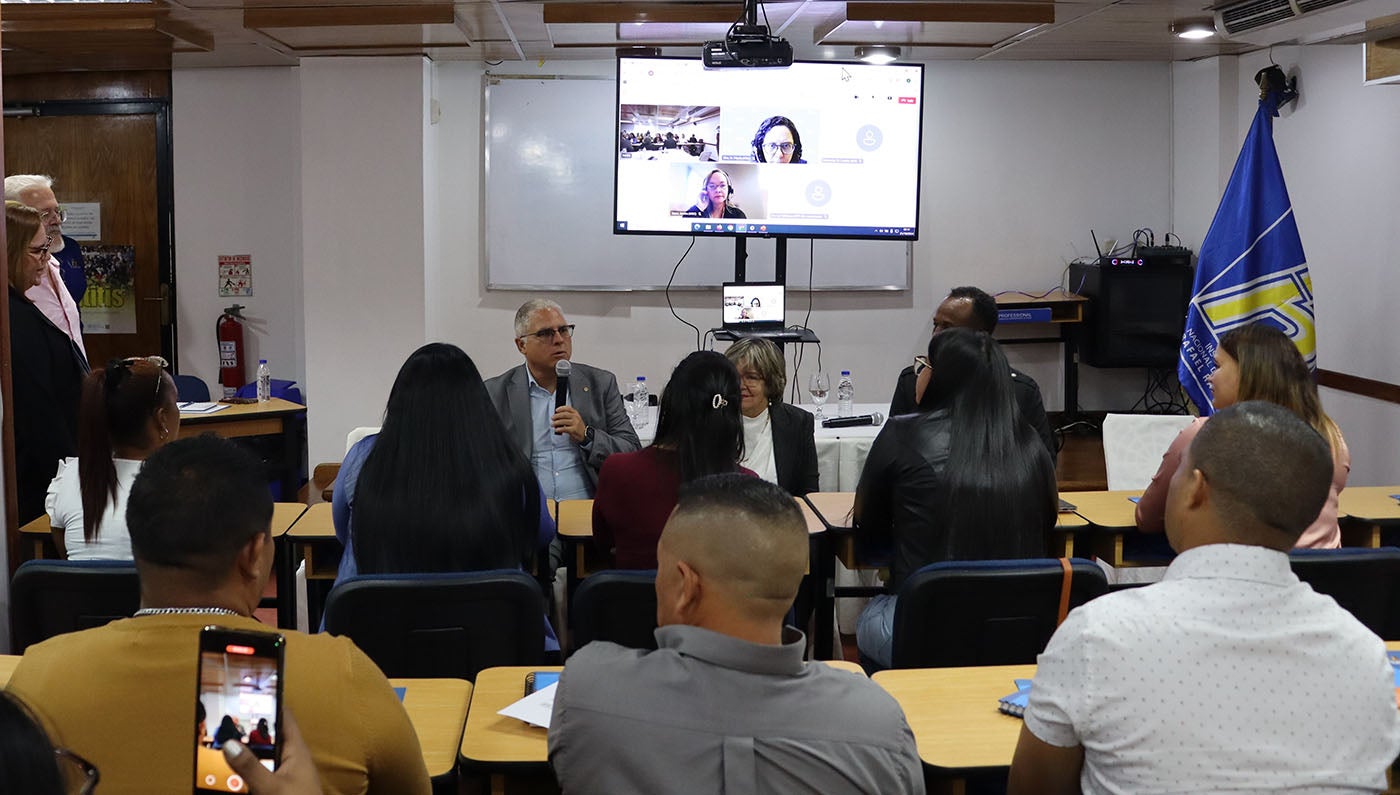
Caracas, 30 October 2024 (PAHO/WHO) - Venezuela is making steady progress in its efforts to eliminate trachoma, a disease that stands as the leading cause of infectious blindness worldwide and disproportionately impacts Indigenous communities in the Amazon basin. As part of the Initiative for the Elimination of Trachoma in the Americas, a partnership between the Pan American Health Organization (PAHO) and the Government of Canada that includes Venezuela and nine other countries in the region, the country has trained 16 health workers to conduct surveys estimating the prevalence of this disease.
From October 21 to 25, the Rafael Rangel National Institute of Hygiene (INHRR) hosted trainers Diana Gómez, Hollman Miller, Daniela Vaz Ferreira, and Michael Dejene, a training supervisor from Tropical Data—a global initiative collecting data on neglected tropical diseases. Throughout the week, teams assigned by the Ministry of Popular Power for Health (MPPS) were trained as examiners, recorders, sample managers, and logistical support staff. These professionals will lead baseline prevalence surveys to assess the scale of trachoma in Venezuela and determine whether it poses a public health concern.
The training launch was attended by key figures, including Jesús Osteicochea, Vice Minister of Collective Health at MPPS; Luz Rodríguez, Director General of Epidemiology at MPPS; Esperanza Briceño, President of INHRR; Joskany De La Rosa, Health Authority for the state of Amazonas; Cristian Morales, PAHO Representative in Venezuela; Ana Luciañez, PAHO Regional Advisor for Neglected Infectious Diseases; Franklin Hernández, PAHO Advisor on Communicable Diseases in Venezuela; and Sandra Talero, PAHO’s Technical Officer for Neglected Infectious Diseases and Coordinator for the Initiative to Eliminate Trachoma.
Morales emphasized the importance of this initiative, noting that it is “an investment in health and well-being for all, especially for populations in situations of vulnerability, who are often the most marginalized.” He also highlighted the economic benefits of public health initiatives like this one: “For every dollar invested in eliminating neglected diseases, there is an annual net benefit of around 25 dollars.”
At the close of the training, teams conducted field exercises in Los Corales, La Guaira state, to prepare for outreach in 30 communities across the Atures, Autana, and Manapiare municipalities of Amazonas state.




